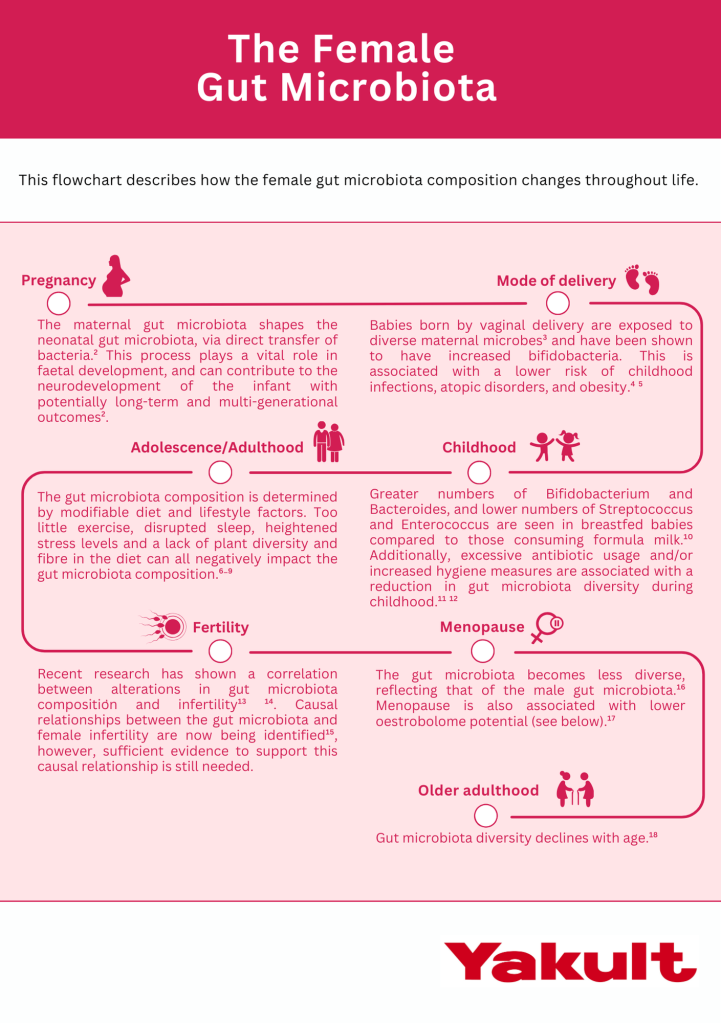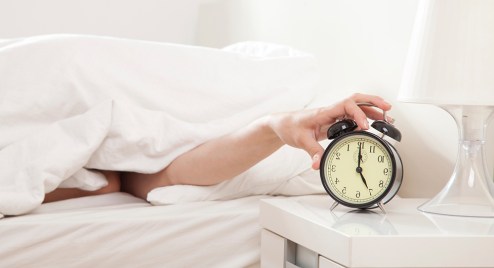I’m A Woman’s Health Expert – here’s how your gut may influence your menstrual cycle

Advertorial promotion
Research from Yakult has found that over 80 per cent of women would like to learn more about how their gut health could impact their overall wellbeing but 9 in 10 women have never heard of the Gut-Hormone Axis – the bidirectional relationship between the gut microbiome and female sex hormones, namely oestrogen and progesterone.
With the right guidance and information, women can take steps to help support their gut health and ease some of the symptoms they experience.
To help raise awareness about the gut-hormone axis and harness its power, Yakult has partnered with Dr Naomi Potter, an expert in women’s health and the menopause, to share expert advice on how looking after your gut can be a vital tool in helping to look after yourself during your menstrual cycle.
The Menstrual Cycle
The time of the month when women are on their period brings about clear changes to consistency and frequency of stool due to fluctuating levels of hormones, specifically oestrogen and progesterone. (Bharadwaj et al. 2015)
Throughout the cycle, oestrogen and progesterone levels fluctuate.
- During the follicular phase (i.e. from start of period to ovulation), these hormones gradually rise, which can slow bowel movements and lead to constipation, gas and bloating for some women.
- During the luteal phase (i.e. from ovulation to start of period), oestrogen and progesterone levels will drop and prostaglandins – a group of lipids with hormone-like actions – will rise if the egg remains unfertilised.
Collectively, these phases can cause diarrhoea, cramping and increase pain sensitivity just as bleeding begins. This is where the term “period poop” comes from.
The Science
Sex hormone receptors located in gastrointestinal cells respond to fluctuating hormone levels, affecting gut function and symptoms. Oestrogen and progesterone impact movement of food through the body and play a role in how easily unwanted substances pass through the gut barrier, potentially causing different gut symptoms during phases of the menstrual cycle.
Dr Naomi Potter, comments: “Despite the fact that many women notice changes in their gut while they are on their period, many do not connect these hormone changes with gut health and the potential role it could play in alleviating some of the uncomfortable symptoms. Changes in the gut microbiome can impact oestrogen levels as gut health and microbial diversity can influence excretion and recirculation of oestrogen (Baker et al. 2017) – therefore impacting overall hormone status quo. Prioritising gut health may may help to reduce some of these symptoms many women experience’
Dr Naomi’s Tips
Support your gut with simple lifestyle changes.
Consume a diverse diet
Only a third (36 per cent) of women have tried eating a more diverse diet to help support their gut. Different gut bacteria thrive on various ‘types’ of plant fibres, so it’s good to change it up with a diverse range of dishes. For example, try adding tins of mixed beans to warming curries, Bolognese sauces and soups, to boost your fibre intake. Little additions here and there can help boost our plant food intake and in turn, help make for a happier gut.
Sleep
Sleep is important for gut health as it is linked to increased gut bacteria, as well as reducing the stress hormone, cortisol. Poor sleep quality and length is associated with an increased calorie intake (500+ extra kcals/day) and a heightened craving for lower fibre, higher sugar foods, which we know don’t benefit our gut health.
Manage stress
Manage stress levels by practicing mindfulness techniques.
Track symptoms
As cycles and symptoms including type, duration and severity, will vary between women, it could be helpful to track gut symptoms whilst tracking your menstrual cycle to better understand individual cyclical changes and how they impact our gut health – knowledge is power!
For further information and advice, including how your gut health can impact your wellbeing during the perimenopause and menopause too, please visit yakult.co.uk.










